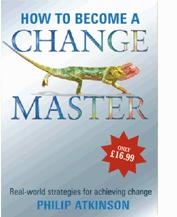Mastering Self Discipline

At this time of year, we see the good intentions of New Year resolutions flatten out. All good intent and the motivation to overcome our challenges has finally died. Whether your goal was a new career move, further professional development of personal goals, to get fit and healthy or prepare for running that 10K, it seems that the enthusiasm of setting goals and intentions is now no more.
We find that people can be their own worst enemy when they need to make changes either in a business or personal setting. It is very much like we create resistance to taking charge. The key is learning to master ‘self-discipline’ (SD).
Having self-discipline (SD) is the key to being able to access the source of inner power, determination, and commitment to effectively accomplish tasks and goals in the most efficient ways possible.
Self-discipline is more than self-control. It is a process of channelling intentions, values, actions, habits and simple, consistent good behaviours in any area of life.
How to develop Self Discipline:
How it works
Self -Discipline should be perceived as positive and satisfying behaviour rather than being negative, unattractive and hard work. The old way of approaching Self Discipline as something that is forcing us to do what we don’t want to – we should view it as a positive force that will unleash our inner power. It is our own resistance fighting us back.
Thinking of your past, you may have thought of self-discipline as a process of working with grim determination to correct weaknesses in performance or plough through difficult tasks. True self-discipline is actually powerful and consistent with a healthy work-style. Natural self-discipline flows from the strength of having a clear vision of what you want to be, do and have, coupled with how you live your unambiguous personal values. You can naturally rely on your inner resources as you increasingly recognise the strength of your determination and perseverance in completing what needs to be done.
Rehearse & Practice until Perfect
Being self-disciplined does not have to be burdensome or exhausting. Self-discipline means you can immediately find the reward in any task, so you can follow through with as little resistance as possible.
You need Role Models
The best way to ‘learn’ self-discipline is to identify people who you admire who portray the same level of self-discipline’ you wish to master. Focus on and emulate those who practice self-discipline in an activity or area of life in which you would like to achieve similar results.
Watch them as they go about their business. Focus on the details of what they are doing and how and where they do it. How are they doing what they do? Be very specific when observing how they demonstrate their ‘self-discipline. What is it about what they do that could work for you? What particular behaviours appeal to you? What could you take from them that would increase your self-discipline? Choosing several role models will strengthen your self-discipline because you will be applying the key strategies, habits, attitudes and behaviours of your role models.
Develop Mastery in your Self Discipline
Mastery of any skill or behaviour is founded on repetition and regular practising of that skill until you become unconsciously competent at it. You don’t even have to think about doing it – it just becomes automatic.
Rule of 10,000
According to Malcolm Gladwell’s Rule of 10,000 hours of practice to develop such mastery. Mastery comes as a result of thousands, of hours spent in activities focused on what you want to become. These 10,000 hours equates to 40 hours per week for five years. This rule applies to all activities, whether it is mastering a musical instrument, becoming master salesperson, skilful negotiator, respected business analysts or a world-class athlete. Expertise, mastery, and success are possible for everyone when we harness develop strategies and behaviours of self-discipline.
Benefits of developing Self Discipline
You will naturally become more disciplined if you:
How do you rate currently on the Self-Discipline (SD) scale?
How aware are you of your relative degree of self-discipline? If I am right, the things you enjoy doing don’t pose any problems. It is probably those things you dislike doing or those things you don’t know quite how to do, that pose the problem for you. Pay attention to your behaviour for clues to your strengths and limitations in your SD scale. Focus primarily on instances when self-discipline flows for you. What is it about those times that will teach you how you make your self-discipline more effective.
To help, observe accurately:
Focus on Four Factors for greater Self-Discipline
Here are the 4 factors:
1. Identify & Accept
Be objective about your own situation. Accept where you stand currently in the SD stakes.
2. Invest in Willpower
What does it take to finally set yourself a target or goals before you start the race? Get the relationship right with Ready, Set, Go. Your current degree of willpower provides an intensely powerful yet short term boost. Be careful, that temporary surge of willpower needs sustaining but if directed with focus will overcome inertia and resistance, and ignite momentum.
3. Implementation Mindset
Most people often do what they like doing or what they find easiest for them. The reality of goal achievement is that ‘hard work’ makes the difference. Do those things which have the highest payoff, and the rest of the work is relatively easy. Tackle the complicated stuff first. Yes, you will find that it is a challenge, but you will be so much more relaxed when you get rid of the tough stuff.
4. Intrepid and Persistent
Success in the Marathon is not down to the first few steps but the ability to pace yourself over the whole length of the 26-mile race. There will be times when you hit the metaphorical wall at 20 miles, often known as the half-way point. You have to keep on going if you want to complete the distance. Focus on the end-result and press on, even when you feel like giving up and stepping off the course. Persistence allows you to keep taking action also though the going is extremely tough.
Summary
Sometimes, the lack of self-discipline can be a real barrier holding back personal and organisational performance experienced across the office, the team and the organisation. Contact us if you’d like to hear more about how we can help you create a culture of self-discipline in challenging times.
Philip Atkinson
We find that people can be their own worst enemy when they need to make changes either in a business or personal setting. It is very much like we create resistance to taking charge. The key is learning to master ‘self-discipline’ (SD).
Having self-discipline (SD) is the key to being able to access the source of inner power, determination, and commitment to effectively accomplish tasks and goals in the most efficient ways possible.
Self-discipline is more than self-control. It is a process of channelling intentions, values, actions, habits and simple, consistent good behaviours in any area of life.
How to develop Self Discipline:
- Focus on a specific area where you need unwavering self-discipline.
- Clarify what you are choosing to accomplish.
- Assess the benefits that will accrue to you when you achieve this result, and how working toward it contributes towards a variety of your goals.
How it works
Self -Discipline should be perceived as positive and satisfying behaviour rather than being negative, unattractive and hard work. The old way of approaching Self Discipline as something that is forcing us to do what we don’t want to – we should view it as a positive force that will unleash our inner power. It is our own resistance fighting us back.
Thinking of your past, you may have thought of self-discipline as a process of working with grim determination to correct weaknesses in performance or plough through difficult tasks. True self-discipline is actually powerful and consistent with a healthy work-style. Natural self-discipline flows from the strength of having a clear vision of what you want to be, do and have, coupled with how you live your unambiguous personal values. You can naturally rely on your inner resources as you increasingly recognise the strength of your determination and perseverance in completing what needs to be done.
Rehearse & Practice until Perfect
Being self-disciplined does not have to be burdensome or exhausting. Self-discipline means you can immediately find the reward in any task, so you can follow through with as little resistance as possible.
You need Role Models
The best way to ‘learn’ self-discipline is to identify people who you admire who portray the same level of self-discipline’ you wish to master. Focus on and emulate those who practice self-discipline in an activity or area of life in which you would like to achieve similar results.
Watch them as they go about their business. Focus on the details of what they are doing and how and where they do it. How are they doing what they do? Be very specific when observing how they demonstrate their ‘self-discipline. What is it about what they do that could work for you? What particular behaviours appeal to you? What could you take from them that would increase your self-discipline? Choosing several role models will strengthen your self-discipline because you will be applying the key strategies, habits, attitudes and behaviours of your role models.
Develop Mastery in your Self Discipline
Mastery of any skill or behaviour is founded on repetition and regular practising of that skill until you become unconsciously competent at it. You don’t even have to think about doing it – it just becomes automatic.
Rule of 10,000
According to Malcolm Gladwell’s Rule of 10,000 hours of practice to develop such mastery. Mastery comes as a result of thousands, of hours spent in activities focused on what you want to become. These 10,000 hours equates to 40 hours per week for five years. This rule applies to all activities, whether it is mastering a musical instrument, becoming master salesperson, skilful negotiator, respected business analysts or a world-class athlete. Expertise, mastery, and success are possible for everyone when we harness develop strategies and behaviours of self-discipline.
Benefits of developing Self Discipline
You will naturally become more disciplined if you:
- Know and articulate your purpose and your goals
- Deepen confidence in self in your ability to achieve your goals
- Be clear about why the goals are important to you
- Clarify your reasons for taking action
- Know what you need to do – have a clear idea of the full picture, and the sequence of events that has to happen
- Follow-through on what you need to do
- Do the right things in the most efficient way possible.
- Eliminate unnecessary tasks ( even though you may enjoy doing them) that waste your time and energy.
- Perceive self-discipline to be positive and joyful, rather than a chore
- Understand that only you create your own personal resistance to doing what needs to be completed
- Increase your ability and agility to adapt to emerging situations without stress
- Align your perseverance to the results you want to achieve
- Practice the use of the strategies, tools and techniques and behaviours that work for other people that would make you more effective and efficient.
How do you rate currently on the Self-Discipline (SD) scale?
How aware are you of your relative degree of self-discipline? If I am right, the things you enjoy doing don’t pose any problems. It is probably those things you dislike doing or those things you don’t know quite how to do, that pose the problem for you. Pay attention to your behaviour for clues to your strengths and limitations in your SD scale. Focus primarily on instances when self-discipline flows for you. What is it about those times that will teach you how you make your self-discipline more effective.
To help, observe accurately:
- At what time of day is self-discipline easier for me?
- What locations and environments fuel and ignite my self-discipline?
- What strengthens my focus and practice?
- What distractions (Email, YouTube cat Videos, Social Media) get in the way?
- Is my self-discipline enhanced by silence and solitude or by togetherness?
- What music and social ambience encourages my SD?
- How does clutter aid or hinder my SD?
- Who can I rely on to energise my self-discipline?
- What ‘away from’ (what happens if I don’t get this done) motivation would encourage a more substantial degree of SD?
- Maybe your self-discipline is reignited through the energy of specific individuals, colleagues, friends, fables and your personal history of when you have encountered.
- Now ask yourself, “How can I make these things part of my days more often?”
Focus on Four Factors for greater Self-Discipline
Here are the 4 factors:
1. Identify & Accept
Be objective about your own situation. Accept where you stand currently in the SD stakes.
2. Invest in Willpower
What does it take to finally set yourself a target or goals before you start the race? Get the relationship right with Ready, Set, Go. Your current degree of willpower provides an intensely powerful yet short term boost. Be careful, that temporary surge of willpower needs sustaining but if directed with focus will overcome inertia and resistance, and ignite momentum.
3. Implementation Mindset
Most people often do what they like doing or what they find easiest for them. The reality of goal achievement is that ‘hard work’ makes the difference. Do those things which have the highest payoff, and the rest of the work is relatively easy. Tackle the complicated stuff first. Yes, you will find that it is a challenge, but you will be so much more relaxed when you get rid of the tough stuff.
4. Intrepid and Persistent
Success in the Marathon is not down to the first few steps but the ability to pace yourself over the whole length of the 26-mile race. There will be times when you hit the metaphorical wall at 20 miles, often known as the half-way point. You have to keep on going if you want to complete the distance. Focus on the end-result and press on, even when you feel like giving up and stepping off the course. Persistence allows you to keep taking action also though the going is extremely tough.
Summary
Sometimes, the lack of self-discipline can be a real barrier holding back personal and organisational performance experienced across the office, the team and the organisation. Contact us if you’d like to hear more about how we can help you create a culture of self-discipline in challenging times.
Philip Atkinson

